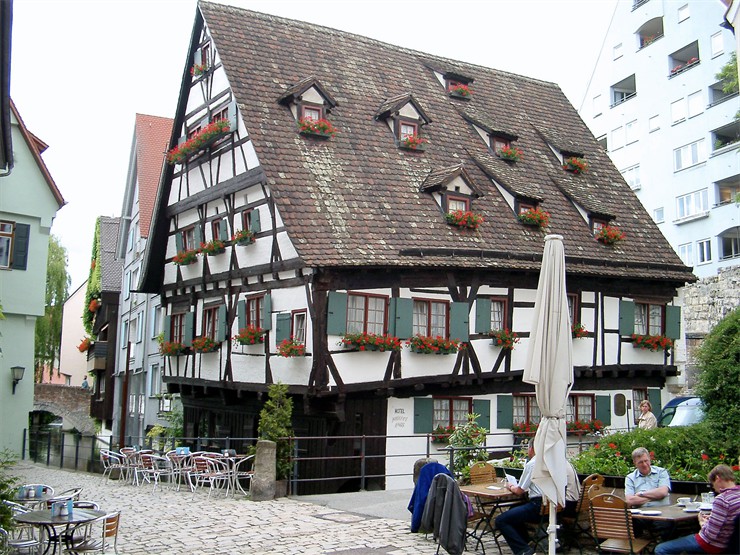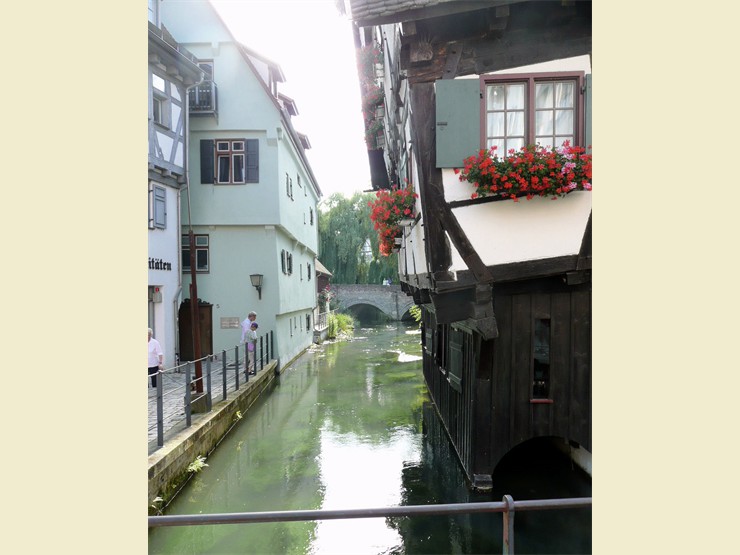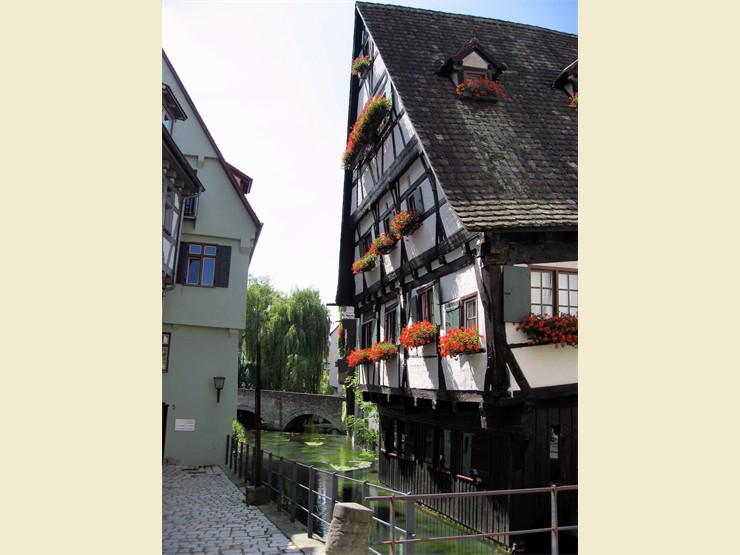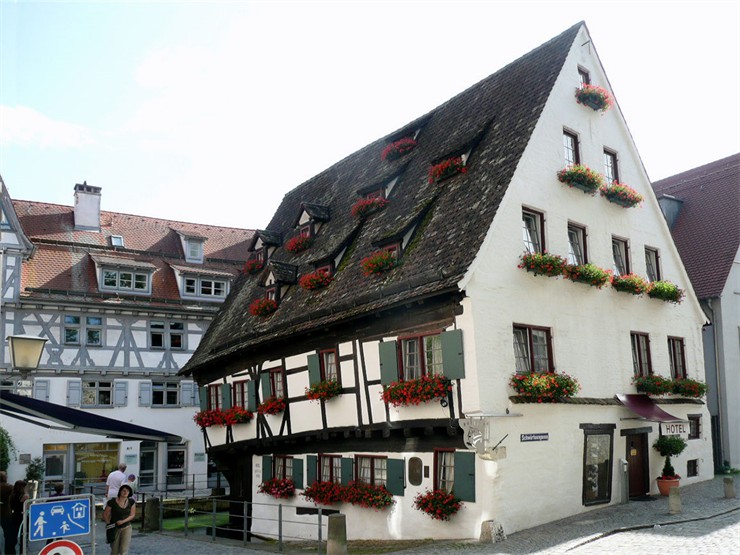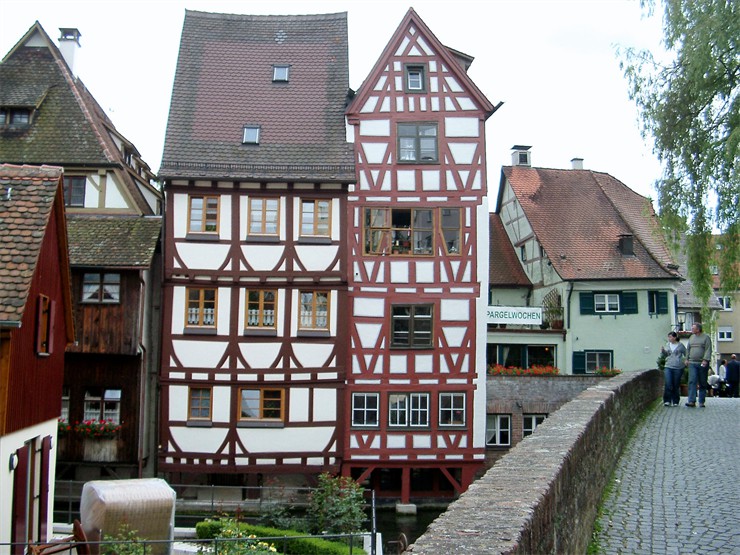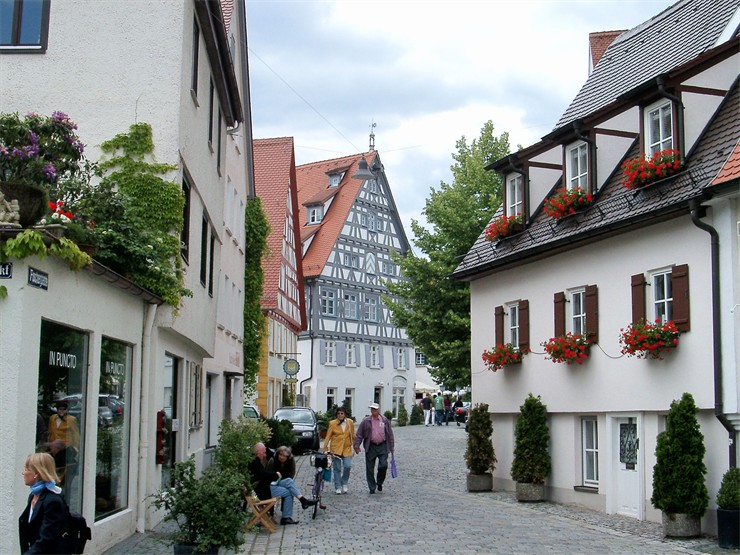Ulm, originally situated only on the left bank of the Danube, was founded in the early Middle Ages and became a palatinate town around 850.
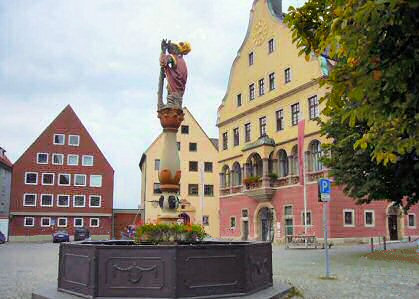
The Palatinate buildings were where the Schwörhaus is located today. There are still remains of the Pfalzkapelle.
In front of the Schwörhaus, the citizens renewed their oath to the city constitution every year on Schwörmontag (swearing letter of 1397).
The city hall of Ulm
with an exterior painting from the early Renaissance.
The oldest part of the building, the southeastern main building, was built in 1370 as a "new department store". In 1419 it was first called the town hall.
In the course of the 15th century, the Council Hall was given windows framed in Gothic architecture (with six electoral figures).
The astronomical clock was installed around 1520. The façade painting shows instructive depictions of virtues, commandments and vices as well as the Ulm box. The painting dates back to 1900, when the painting, which had been largely destroyed by the weather, was restored or rebuilt in the spirit of the guaranteed parts.
The Ulm Minster
with its 161.53 meter (530 feet) high tower, the highest church tower in the world, dominates the cityscape.
The sparrow of Ulm (Ulmer Spatz)
The west portal
with the "Man of Sorrows."
The gothic cathedral houses some treasures. I was impressed by the gothic pulpit with the enormous pulpit lid by Jörg Syrlin the Younger.
In 1377 the people of Ulm had started the construction, financed by the inhabitants. After a long standstill - the church had meanwhile been transferred to the Protestant community in the course of the Reformation - the spire was added to the cathedral in 1890. Thus Ulm now has one of the few Gothic churches that were completely finished.
Figure with fashionable hairstyle in 15th century choir stalls by Jürg Syrlin the Younger
Walk in the fishermen's quarter
The fishermen's quarter with its old alleys, winding passages, bridges and footbridges gives an impression of medieval life. Along the paths and the two arms of the little river Blau there are a large number of half-timbered houses from the 16th and 17th centuries. Very impressive is the "Schiefe Haus", built in the 14th century, which is now a hotel.
The old city wall
|
|

first stage to Oberdischingen |
|
back |
By bike from Leipzig to Constance |
Ulm - Biberach |
